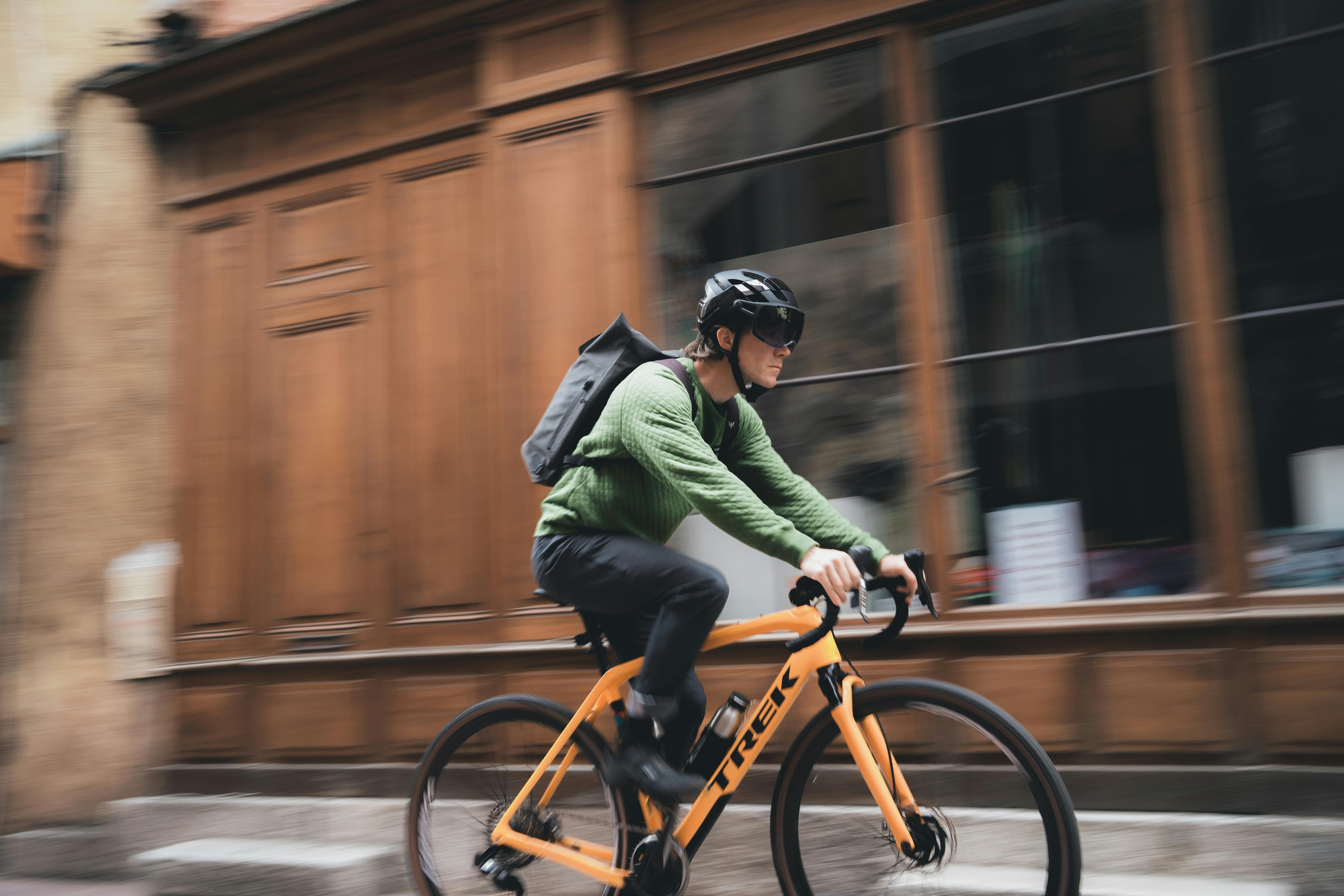Is wearing a helmet mandatory for cycling?
Bicycling, a mode of transport and a recreational or sports equipment, offers us a sense of freedom and connects us with our environment.

Cycling, both as a means of transport and as leisure or sports equipment, offers us a sense of freedom and connects us with our environment. However, this freedom comes with a great responsibility: to ensure our own safety and that of other road users. In France, the issue of mandatory helmet use for cyclists often sparks debate and raises several questions. Who needs to wear a helmet? How do current regulations influence our daily cycling habits? This article delves into French legislation on bicycle helmets, a crucial safety measure.
Mandatory Helmet Use: What Does French Legislation Say?
Bicycle safety is a constant concern for cyclists of all ages. In France, the legislation regarding bicycle helmet use varies by the cyclist's age, emphasizing the importance of protecting younger riders. For children under 12 years old, wearing a helmet is not just recommended; it is mandatory, whether they are riding or passengers. The helmet must be properly fastened and comply with European safety standards, bearing the "CE" mark that guarantees its conformity.
Failure to comply with these regulations can result in serious penalties: a standard fine of 135 euros may be imposed if a child is caught without a helmet. The responsibility to ensure compliance with this law falls on the adult accompanying the child, whether a parent or another adult.

Why is a Bicycle Helmet Crucial for Your Safety?
Every time you ride your bike, whether for a city stroll or a country road adventure, the helmet is your first ally for peace of mind during your outing. Think of it as a real shield: in case of a fall, it can significantly reduce the risk of serious head injuries. Studies confirm this: wearing a helmet can reduce the risk of brain injuries by up to 88%. It's a simple piece of equipment that represents a giant step towards prevention and safety. Let's not forget that, young or old, novice or experienced cyclists, no one is immune to unexpected events. Wearing a helmet is a guarantee of peace of mind for you and your loved ones, and embodies a commitment to safely pursuing your passion for cycling.
What are the Mandatory Safety Equipments for Cycling in France?
Beyond the helmet, certain equipment is mandatory for all cyclists! For optimal visibility, day and night, each bicycle must be equipped with compliant lights and signaling devices. This includes a front light emitting white or yellow light and a rear position light visible from a distance. And let's not forget the reflectors:
- One at the front
- Two on each wheel
- Two on the pedals
- One or more at the rear.
These devices are essential for signaling your presence on the road and preventing accidents. But that's not all! Front and rear brakes in good condition are mandatory to effectively stop in any situation. Each piece of equipment is important and contributes to a safer experience.

How to Choose Your Bicycle Helmet?
Choosing the right bicycle helmet is not just about complying with the law; it's a commitment to your personal safety and performance on the road or trails. To find the perfect helmet, start by checking its compliance with safety standards, like the CE marking, which ensures that the product meets the strictest European requirements. Make sure the helmet fits well: neither too tight nor too loose, it should comfortably surround your head without tipping.
Also consider ventilation and weight of the helmet. A good helmet should offer sufficient air circulation to keep you cool during your most intense efforts, without compromising its sturdiness. Lightweight yet robust, it should allow you to pedal for hours without feeling a burden on your neck and shoulders.
It is essential to choose a helmet suited to your specific type of riding. Whether you're a road cycling enthusiast, a mountain biking aficionado, or an urban cyclist, each style of riding has its own requirements for helmets. Road helmets are often lighter and more aerodynamic, ideal for speed and long distances. Mountain biking helmets, on the other hand, are designed with materials that limit impacts and offer optimal ventilation, to keep your head cool even in extreme situations. Urban helmets prioritize comfort and style while ensuring necessary safety in city traffic.
Finally, consider the style and additional features: bright colors for better visibility, visors to protect your eyes from the sun and debris, or easy adjustment systems for quick on-the-go fitting. Choosing a bicycle helmet is like choosing a travel companion: it must meet your needs, reflect your style, and most importantly, ensure your safety with every pedal stroke.
Key Takeaways
Legal requirement for the young: in France, wearing a helmet is mandatory for children under 12, whether they are riding or passengers on the bicycle. The helmet must comply with European standards (CE marking).
Consequences of non-compliance: failing to comply with this regulation can result in a fine of 135 euros, and the responsibility for this obligation falls on the adult accompanying the child.
Importance of the helmet: wearing a helmet is essential for safety, as it can significantly reduce the risk of serious head injuries.




